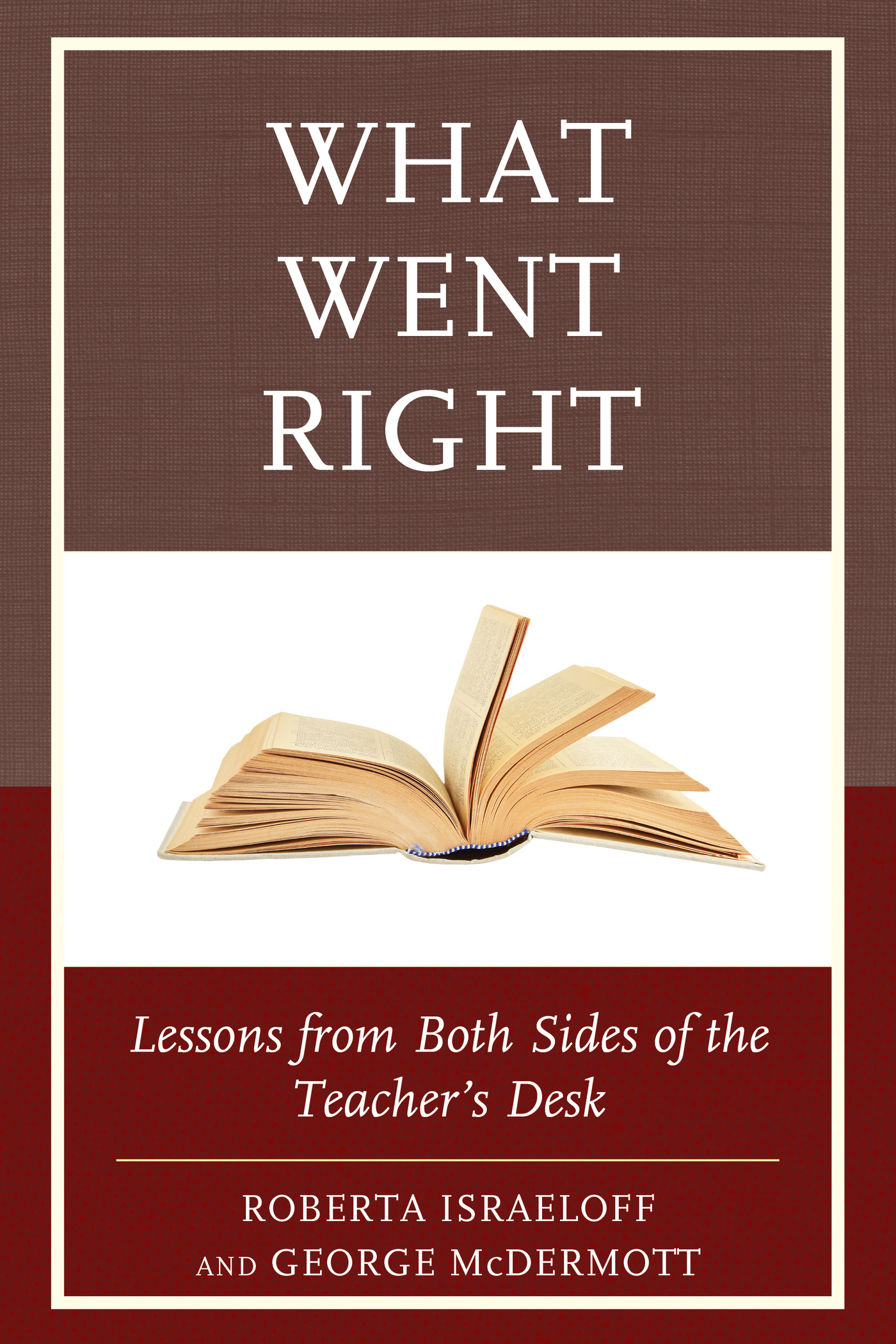What Went Right
What Went Right
Lessons from Both Sides
of the Teachers Desk
Roberta Israeloff
and
George McDermott
ROWMAN & LITTLEFIELD
Lanham Boulder New York London
Published by Rowman & Littlefield
A wholly owned subsidiary of The Rowman & Littlefield Publishing Group, Inc.
4501 Forbes Boulevard, Suite 200, Lanham, Maryland 20706
www.rowman.com
Unit A, Whitacre Mews, 26-34 Stannary Street, London SE11 4AB
Copyright 2017 by Roberta Israeloff and George McDermott
All rights reserved. No part of this book may be reproduced in any form or by any electronic or mechanical means, including information storage and retrieval systems, without written permission from the publisher, except by a reviewer who may quote passages in a review.
British Library Cataloguing in Publication Information Available
Library of Congress Cataloging-in-Publication Data Available
ISBN: 978-1-4758-3413-0 (cloth : alk. paper)
ISBN: 978-1-4758-3414-7 (pbk. : alk. paper)
ISBN: 978-1-4758-3415-4 (electronic)
 TM The paper used in this publication meets the minimum requirements of American National Standard for Information SciencesPermanence of Paper for Printed Library Materials, ANSI/NISO Z39.48-1992.
TM The paper used in this publication meets the minimum requirements of American National Standard for Information SciencesPermanence of Paper for Printed Library Materials, ANSI/NISO Z39.48-1992.
Printed in the United States of America
To Wallace Kaufman and Faith Toperoff,
and to the memory of Yetta Haralick,
Jim McPartlin, Reine Kidder,
Ned Sudborough, and Anne Thompson.
To all the teachers in my familypast, present,
and future. And especially to Helen, who makes
all things possible.
Cease conceiving of education as mere preparation for later life and make it the full meaning of the present life. John Dewey
Civilization is in a race between education
and catastrophe.
H. G. Wells
Acknowledgments
Excerpts from Teaching as an Act of Love: Reflections on Paulo Freire and His Contributions to Our Lives and Our Work, copyright 1998 by Antonia Darder. Used by permission. All rights reserved.
Together, wed both like to thank our agent, Janet Rosen, for believing in this bookand for enjoying it. Wed also like to thank our editors at Rowman & LittlefieldSusanne Canavan, Tom Koerner, Carlie Wall, and Hannah Fisher.
From Roberta
Im in a writing circle that meets every Wednesday, and all six members have helped me craft these letters from the first to the last. Thank you, Barbara Heller, Virginia Stanley, Eileen Morrone, Judy Davis, Marcia Gross, and Linda Bergman. Id also like to thank Lynn Seligman.
Thanks to Ben and Jake Fleisher, my steadfast teachers who, along the way, have often taught me more, especially about myself, than I perhaps cared to know but in the end had to learn. And finally thanks to David, my classmate in all subjects.
From George
Thanks to the leaders of the Philadelphia Writing Project, and to my fellow participants in its Summer Institute, for sharing the insights and techniques that helped me help my students learn to write (and write to learn) and renewed my own inspiration and commitment to writing.
Thanks to Gus Franza, for giving me room to become a teacher; to the poets of Suppose an Eyes, at the University of Pennsylvania, for helping me transcend utilitarian English; and again to Helen, for ensuring that I learn something new every day.
Prologue
This book didnt start out as a book. It began as a conversation, a long conversationalthough exactly how long depends on when we start counting. The true beginning was in September 1967, when we both walked into an English classroom in the A wing of Syosset High School, a sprawling building in a North Shore suburb on Long Island, about thirty miles east of Times Square.
One of us, starting her junior year, sat at a student desk, the kind with a large flat arm that swings up when you have to write. The other, just three years out of college and beginning his second year at Syosset High, took his place at the teachers desk and passed out a lengthy syllabus. Eleventh-grade English was devoted to American literature.
Over the next nine months, in a classroom we can both still visualize, we, along with about twenty-five other students, read dozens of novels, plays, poems, and short stories. We argued about these worksabout plot and characterization, about the authors themes and intentions, about what symbolism meant and whether it even existed. We analyzed structure and referenced historical contexts and uncovered broad cultural implications in the commonalities shared by individual works. One of us, along with her classmates, wrote papers long and shortexposition, narratives, and creative pieceswhich the other returned richly annotated, comments scrawled in hard-to-decipher green ink. But mostly what we did was argue.
At the end of senior year, Roberta asked George to sign her yearbook. Keep in touch, his inscription read. Id like to see who you become.
That turned out to be our last communication for more than four decades. And it probably would have ended there, if not for Facebook.
Yes, Facebook. A few years ago, we began another conversationor perhaps just resumed the originalwhen we found ourselves agreeing with articles people were posting about education. We both deplored the way teachers were being blamedscapegoated, we believedfor failures in the educational system. We picked up where wed left off, talking to each other via email in the same familiar way we had years earlier, building on each others stories, ideas, analyses. Wed both been involved in education through the decades, though in different capacities, and quickly discovered that wed reached many of the same conclusions about the issues dominating educational conversations: high-stakes testing, school choice, vouchers and charter schools, academic standards, the Common Core, accountability, tenure, class size, the length of the school day, and the length of the school year.
We agreed that the American education system was at an inflection point, generating controversy and disagreement across the social and political spectrum. The only issue people seemed to agree on was that the schools werent working. Or, at best, that they werent working as well as we wanted and needed them to work if they were to be, as Diane Ravitch has called them, an engine of democracy.
At times, the problems seemed insurmountable. To take a long view was to see pendulum swings from one extreme to the other, every innovation igniting a dramatic reversalbut just for a short time until the pendulum swung back again.
Yet we knew there have been times when American schools did workand places where they worked well. We met during one of those times, in one of those places.
Things were different in the late 1960s, of course. Government policies like the GI Bill that had sparked the postwar boom were still helping veterans as they bought homes and began families, creating the stable middle class powering Americas growth. This support included funding for educationwitness the huge injection of funds for education after the Sputnik launch in 1957. And there was a sense that schools and learning were valued as ends in themselves, not merely as means to economic advantage. Teachers were still respected as leading members of the community, and very smart young people still entered the professionsome leaving other jobs, even Wall Street careers, to become teachers.
Other societal factors were not so different. Funding was just as inequitable as it is today, and schools serving the students who had the most trouble learning, the ones who needed the most support, were just as likely to be strapped for resources. Many communitiesespecially most on Long Islandwere rigidly segregated. Teachers were underpaid compared to other professionals, especially those involved in finance, by perhaps an even wider margin than today. Students were just as likely to feel pressured to succeed, and just as likely to choose instead to tune in, turn on, and drop out. Outside pressure groups, mostly non-educators, were just as likely to interfere with what was happening in the classroomsprotesting, banning books, even demanding curriculum changes.
Next page
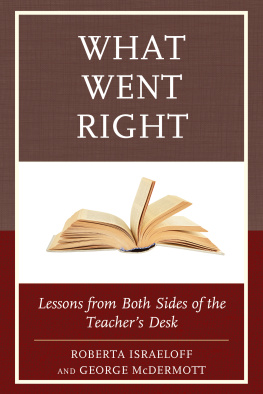

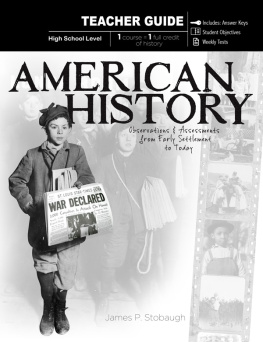

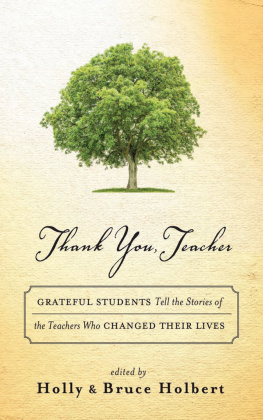
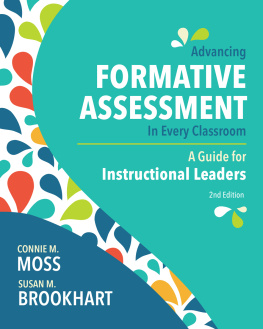
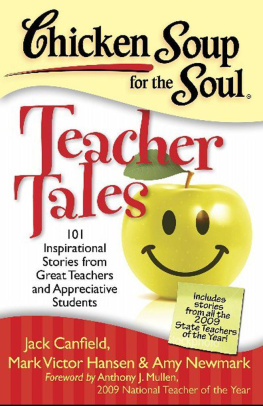
 TM The paper used in this publication meets the minimum requirements of American National Standard for Information SciencesPermanence of Paper for Printed Library Materials, ANSI/NISO Z39.48-1992.
TM The paper used in this publication meets the minimum requirements of American National Standard for Information SciencesPermanence of Paper for Printed Library Materials, ANSI/NISO Z39.48-1992.